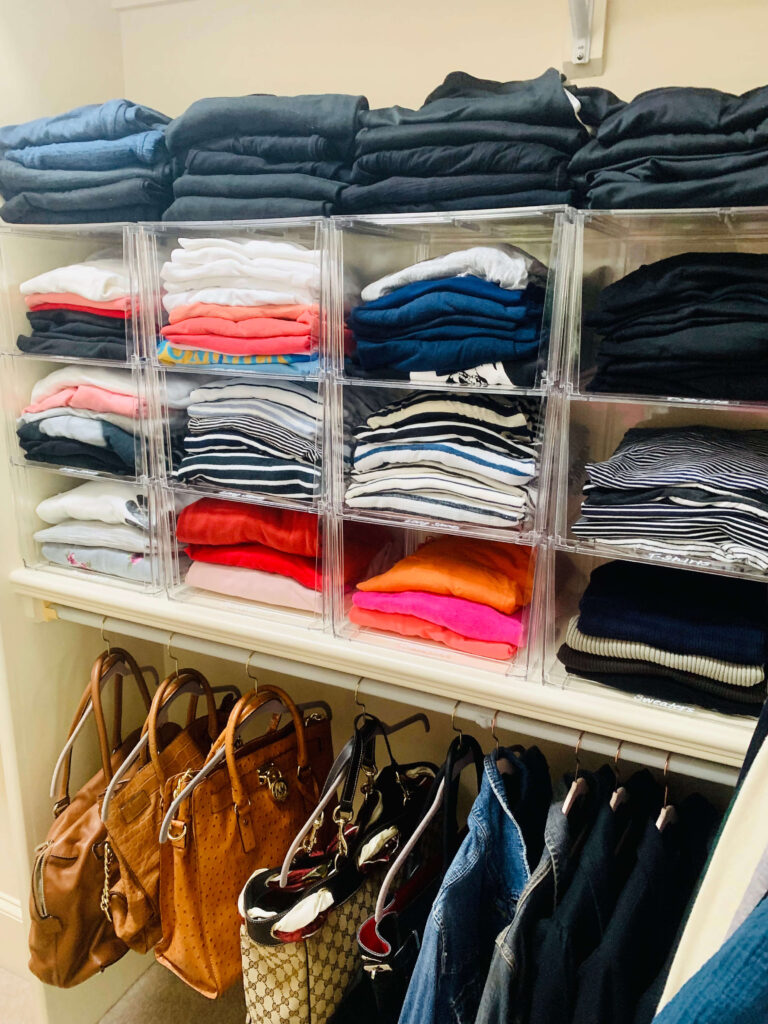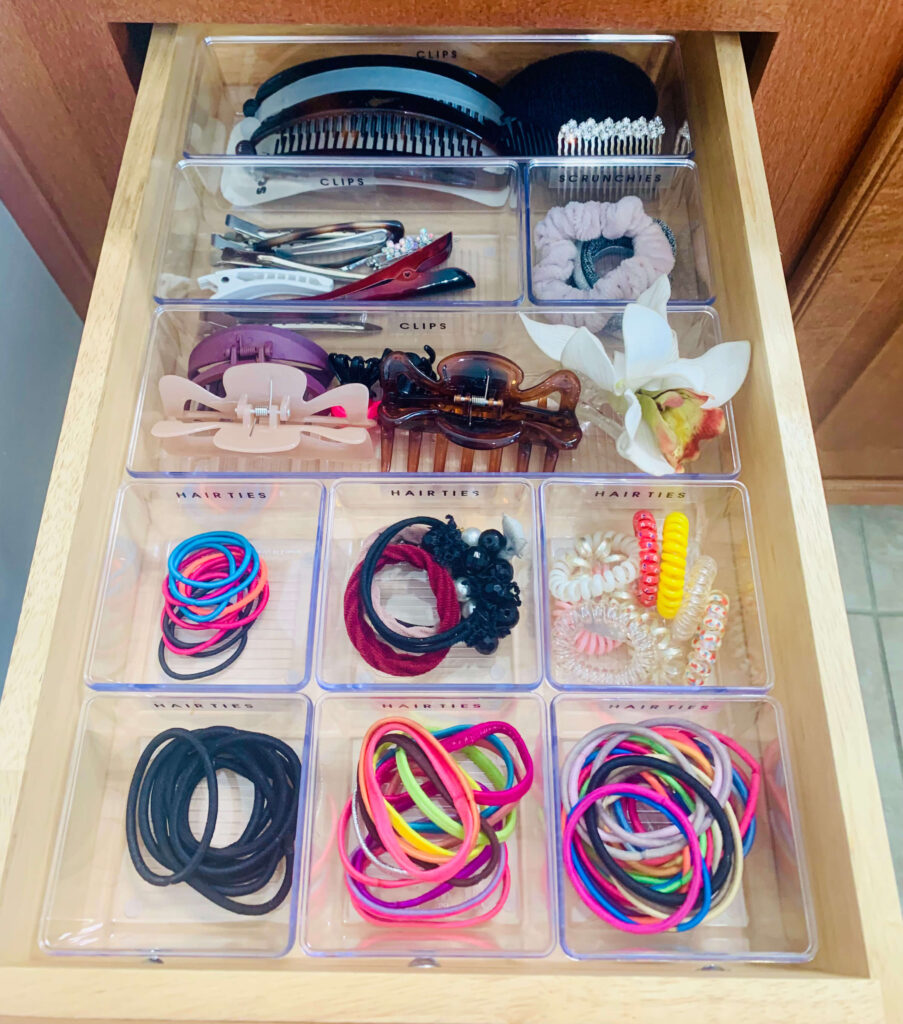Navigating everyday challenges can be tough, especially for adult women with ADHD. Balancing work, relationships, and personal responsibilities can feel overwhelming when your mind is constantly racing and easily distracted. But here’s the good news: Adult women with ADHD can thrive, is not only possible but completely within reach.
Whether you’ve recently been diagnosed with ADHD or have been managing it for years, we will provide you with valuable guidance and support.
Join us on this journey as we empower you to embrace your uniqueness and unlock your fullest potential as an adult woman with ADHD.
It’s time to overcome the obstacles, harness your strengths, and thrive in every aspect of your life.
Get The Guide: ADHD Organization Tools
UNDERSTANDING ADHD IN WOMEN
Women with ADHD often go undiagnosed or are misdiagnosed due to the differences in how the disorder manifests in them compared to men.
While men with ADHD tend to display more hyperactive and impulsive behaviors, women often exhibit more internalized symptoms such as difficulty with focus, organization, and time management. This difference in presentation can lead to women being overlooked and facing challenges in seeking proper diagnosis and treatment.
Research has shown that women with ADHD are more likely to experience co-occurring mental health conditions such as anxiety and depression. These comorbidities can further complicate their lives and make it harder for them to reach their full potential.
Despite these challenges, women with ADHD possess strengths that are often overlooked. They tend to be highly creative, intuitive, and empathetic individuals. These qualities, when harnessed and nurtured, can lead to extraordinary achievements in various domains.
THE IMPACT OF ADHD STIGMA ON WOMEN
Women with ADHD face a multitude of challenges in their personal and professional lives. The difficulties with focus and organization can make it challenging to meet deadlines, stay on top of responsibilities, and maintain relationships. The constant struggle to keep up with the demands of daily life can lead to feelings of overwhelm, self-doubt, and low self-esteem.
In the academic setting, women with ADHD may struggle with studying, completing assignments, and managing their time effectively. The traditional educational system often fails to accommodate their unique learning styles and needs, making it difficult for them to reach their full academic potential.
In the workplace, women with ADHD may encounter difficulties with tasks that require sustained attention and organization. They may struggle with time management, meeting deadlines, and staying focused during long meetings or repetitive tasks. These challenges can impact their career progression and overall job satisfaction.
RECOGNIZING AND EMBRACING STRENGTHS
While women with ADHD face numerous challenges, they also possess unique strengths that can be leveraged for success.
Their creativity, intuition, and ability to think outside the box give them an edge in problem-solving and innovation. They often excel in fields that require unconventional thinking, such as entrepreneurship, art, and design.
Women with ADHD are known for their empathy and ability to connect with others on a deep level. This emotional intelligence can be a valuable asset in building meaningful relationships, whether in personal or professional settings.
Their ability to multitask and juggle multiple responsibilities can also make them highly adaptable and resilient individuals.
By recognizing and embracing these strengths, women with ADHD can tap into their full potential and achieve remarkable accomplishments in various areas of their lives.
SEEKING SUPPORT AND RESOURCES
Building a strong support network is vital for women with ADHD. Connecting with others who share similar experiences can provide validation, encouragement, and a sense of belonging. Online communities, support groups, and local organizations dedicated to ADHD can be valuable resources for women seeking support and guidance.
In addition to support networks, there are numerous resources available to help women navigate their personal and professional lives successfully. Books, podcasts, and websites dedicated to ADHD provide valuable information, strategies, and tools for managing symptoms and improving overall well-being.
Get The Guide: ADHD Organization Tools
STRATEGIES FOR MANAGING ADHD SYMPTOMS
Managing ADHD symptoms often involves a combination of strategies, including lifestyle changes, medication, therapy, and support.
Here are some effective strategies for managing ADHD symptoms:
1. Medication:
– Consult with a healthcare professional to determine if medication is appropriate. Stimulant medications like methylphenidate or amphetamine and non-stimulant medications like atomoxetine are commonly prescribed to manage ADHD symptoms.
2. Behavioral Therapy:
– Behavioral therapy, such as cognitive-behavioral therapy (CBT), can help individuals develop coping strategies, improve organizational skills, and address emotional and behavioral issues associated with ADHD.
3. Education and Self-awareness:
– Educate yourself about ADHD and its symptoms. Understanding the condition is the first step to effective management. Encourage self-awareness to recognize when symptoms are particularly challenging.
4. Time Management and Organization:
– Use tools like planners, calendars, and to-do lists to organize tasks and deadlines. Breaking tasks into smaller, manageable steps can make them less overwhelming. Using a timer to keep yourself on task.
5. Routine and Structure:
– Establish daily routines and schedules. Consistency can help individuals with ADHD manage their time more effectively and reduce forgetfulness.
6. Minimize Distractions:
– Create a distraction-free environment when working or studying. Remove clutter, turn off unnecessary electronic devices, and use noise-cancelling headphones if needed.
7. Mindfulness and Meditation:
– Practice mindfulness and relaxation techniques to improve attention and reduce impulsivity. Regular meditation can help individuals stay present in the moment.
8. Exercise:
– Regular physical activity can help regulate dopamine and norepinephrine, neurotransmitters associated with ADHD. It can also reduce restlessness and improve mood.
9. Sleep Hygiene:
– Prioritize good sleep habits. A consistent sleep schedule and a comfortable sleeping environment can reduce ADHD symptoms.
10. Diet and Nutrition:
– A balanced diet rich in protein, complex carbohydrates, and Omega-3 fatty acids can support cognitive function. Some people find that avoiding processed foods, artificial additives, and excessive sugar can help manage symptoms.
11. Label:
-Weak working memory is a challenge with ADHD, adding labels is a game-changer. Items go back to the right place and they keep spaces in order.

EMPOWERING WOMEN THROUGH SELF-CARE
Self-awareness is a crucial first step in empowering adult women with ADHD. By understanding their unique strengths, challenges, and triggers, women with ADHD can develop strategies to manage their symptoms effectively and make informed decisions about their personal and professional lives.
Creating a structured environment and implementing organizational systems can also greatly benefit women with ADHD. Utilizing tools like planners, reminders, and to-do lists can help them stay on track and manage their time more effectively.
Empowering women through self-care involves helping them develop and maintain healthy habits and routines that support their well-being and help manage ADHD symptoms.
- Prioritize Self-Care: Emphasize the importance of self-care as a non-negotiable part of daily life. Encourage women with ADHD to view self-care as an essential component of their overall health.
- Understand ADHD: Knowledge is power. Encourage self-awareness by helping women understand their ADHD symptoms, triggers, and patterns. This understanding can help in developing effective self-care strategies.
- Create a Routine: Establish a daily routine that includes regular self-care activities. Consistency can be a powerful tool in managing ADHD symptoms.
- Time Management: Teach time management techniques, such as using timers, alarms, or apps to structure their day and allocate time for self-care activities.
- Hobbies and Interests: Encourage women to make time for hobbies and interests they enjoy. Engaging in activities they love can provide a sense of fulfillment and stress relief. This will fulfill the low dopamine levels for women with ADHD.
- Self-Compassion: Teach self-compassion and self-acceptance. Women with ADHD may be overly critical of themselves, and practicing self-compassion can improve self-esteem and well-being.
- Limit Screen Time: Excessive screen time can exacerbate ADHD symptoms. Encourage setting limits on screen use, especially before bedtime.
- Learn to Say No: Practice setting boundaries and learn to say no when necessary. Overcommitting can lead to stress and difficulty managing ADHD symptoms.
- Declutter and Organize: Help create an organized living and working environment. A tidy space can reduce mental clutter and improve focus.

ADVOCACY AND AWARENESS
Societal stigma and misconceptions surrounding adult women with ADHD can create additional barriers for women seeking support and understanding. Many people still hold stereotypes about ADHD, assuming it only affects hyperactive young boys and that it is a result of poor parenting or laziness.
It is crucial to challenge these misconceptions and educate others about the reality of ADHD, particularly in women. By sharing personal stories and experiences, women with ADHD can help dispel stereotypes and create a more inclusive and understanding society.
Raising awareness about the unique challenges faced by women with ADHD and advocating for appropriate accommodations and support in educational and workplace settings is essential. By promoting understanding and empathy, we can create an environment where women with ADHD feel accepted and empowered to thrive.
Get The Guide: ADHD Organization Tools
FINAL THOUGHTS
Remember that what works best may vary from person to person. It’s essential to work with a healthcare provider, therapist, or coach to develop a personalized ADHD management plan tailored to your unique needs and preferences. Consistency and patience are key as you implement these strategies.
+ show Comments
- Hide Comments
add a comment